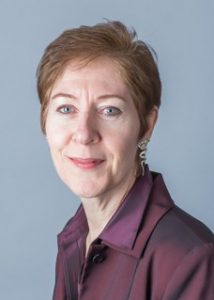A Message From Dean Barrett
Uncertainty seems to be the prevailing theme of 2020 – the uncertainty of the pandemic in a presidential election year when our polarized nation cannot even agree on the benefit of mask-wearing in public

places, the uncertainty of how we will respond to protests against systemic racial injustice, and the uncertainty of what the world will look like post-COVID-19. The pandemic has brought into stark reality our country’s inequities as our most vulnerable populations suffer higher rates of infection and receive a lower quality of health care while they are disproportionally grappling with the economic fallout attending the disease. Food insecurity for school-aged children, increased domestic violence, and a surge in loneliness are just some of the less visible repercussions. Alongside the repercussions of COVID-19 is the growing awareness that the way we see the world is in part determined by forces outside of our control as the internet tailors our news, ensuring that our hunches are correct and our biases are reinforced unless we do the work of reaching further outside our comfort levels to read beyond the world that is fed to us by social media.
We are living in a perfect storm, one that is stretching education’s resources and resilience, but one that is also making abundantly clear our role in society. The core mission of colleges and universities to educate our students continues with extraordinary efforts by faculty and staff as they undertake new learning platforms,
work around more restrictive environments, attempt to balance their increasingly challenging home lives (which, in many cases, now include home offices), and accommodate students’ own limitations and anxieties. That mission is precisely what will save us from assaults on knowledge and facts and from the insularity of perspectives and opinions that occurs in the absence of expansive reading, attentive listening, and vigorous debate. Higher education is not, as many hold, an ivory tower; it is imbricated in the fabric of everyday culture. One of the goals of liberal education is to help students understand the relationship between their classes and the world in which they live. This year’s Without Limits theme, “The End of the World as We Know It?: Inequality, Injustice, and Trauma During the COVID-19 Crisis,” explores the pressing concerns of our time by viewing local, national, and global inequities made visible by the pandemic through a variety of disciplinary lenses.
At a moment when higher education seems most imperiled, we can also see its importance in providing a community for students and preparing future generations to grapple with health and climate crises, racial, economic, and social injustice, gender inequality, as well as the opportunities and problems created by social media that we will be facing. How we collect and interpret data and how we tell the stories of individuals and communities will determine how we solve these crises going forward – and how prepared we are to blunt the worst effects. Engaging meaningfully with the world, understanding our roles as responsible citizens, distinguishing fact from falsehood, and interpreting the never-ending media barrage with critical understanding – these are the invaluable outcomes of a liberal education. As we continue to navigate through these challenging times, let’s not forget how important our work is. That much is certain.
